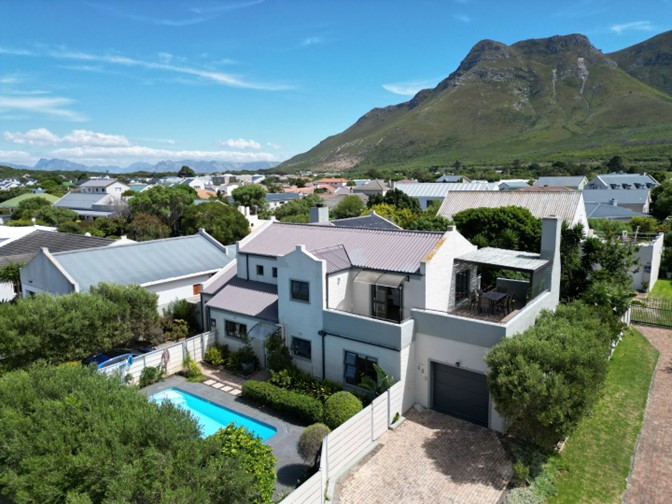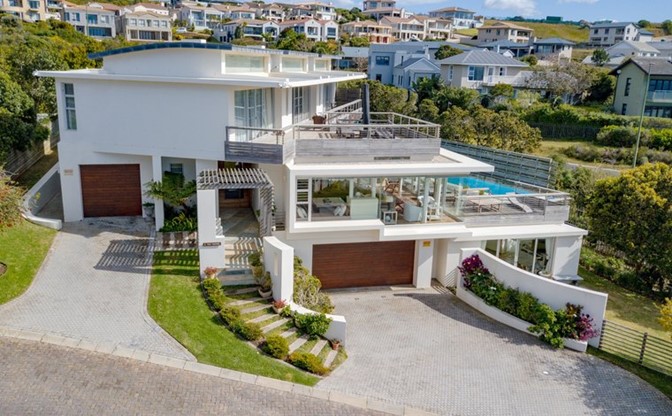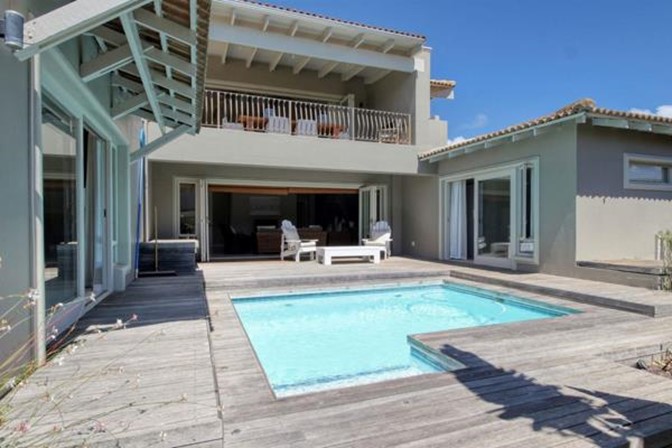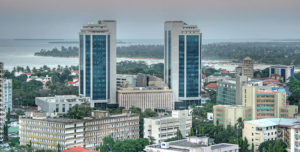Introduction
Investing in property can be a lucrative venture, and when it comes to South Africa, several cities stand out for their potential return on investment. If you’ve got your eyes set on the thriving real estate scene in South Africa, you’re in for an exciting journey. Imagine the dynamic landscapes, diverse cultures, and a real chance to grow your wealth through strategic property investments.
Now, you might be wondering, why South Africa? Well, you are about to discover a land where the potential returns on your investment are as vast as the landscapes that stretch from the iconic Table Mountain to the Indian Ocean.
So, buckle up, because this isn’t just about bricks and mortar – it’s about building your financial future, and you’ve got the insider scoop to guide you every step of the way. Ready to explore the best cities for investment properties in South Africa and unlock the doors to your property investment success? Well, dive in!
1. Cape Town

Cape Town, with its breathtaking landscapes and vibrant culture, is not just a tourist magnet but also a hotspot for property investment. The city’s allure extends beyond its scenic beauty. The demand for rental properties remains consistently high, offering you a steady income stream. The diverse neighborhoods cater to various preferences, ensuring that you find a niche that aligns with your investment goals.
Pros:
- Attracts a strong tourism industry, ensuring high demand for short-term rentals.
- Caters diverse property market, catering to different investment strategies.
- Promises appreciation potential due to ongoing urban development projects.
Cons:
- Entails higher property prices compared to some other cities.
- Demands a competitive market, demanding strategic investment decisions.
- Strong economy: Major tourist hub, diverse industries, high standard of living.
- Beautiful natural environment: Table Mountain, beaches, diverse flora and fauna.
- Established rental market: High demand from students, professionals, and retirees.
- Potential for capital appreciation: Growing population, limited land availability.
- Popular investment areas: City Bowl, Atlantic Seaboard, Southern Suburbs.
- Rental yields: Moderate, around 7-10%.
- Focus Mix of rental and capital appreciation, depending on location and property type.
2. Johannesburg

Johannesburg, the economic powerhouse of South Africa, is a prime destination for property investment. Its dynamic business environment translates into a consistent demand for rental properties. The city’s evolving skyline reflects continuous growth, attracting both local and international investors seeking long-term gains.
Pros:
- Ensures a thriving economic hub ensures a steady demand for rental properties.
- Caters diverse neighborhoods cater to various tenant demographics.
- Allows affordability in certain areas and allows for accessible entry points.
Cons:
- Affects security concerns and may affect certain neighborhoods.
- Leads to rapid urbanization, which can lead to market fluctuations.
- Economic powerhouse: Financial hub, major corporations, diverse job market.
- Large tenant pool: High population density, diverse demographics.
- Infrastructure development: Ongoing projects improving connectivity and amenities.
- Affordability: More affordable than Cape Town, wider range of investment options.
- Popular investment areas: Sandton, Rosebank, Melville, Maboneng.
- Rental yields: Varies depending on location and property type, generally 6-9%.
- Focus: Primarily rental income, with potential for capital appreciation in specific areas.
3. Durban

Durban, with its coastal charm, emerges as a hidden gem for property investment. The city’s affordability, combined with a growing urban landscape, makes it an attractive option for investors seeking potential appreciation and rental income. Durban’s pleasant climate and lifestyle offerings contribute to its appeal for both residents and tenants.
Pros:
- Provides affordable property prices compared to major cities.
- Unveils growing urban development, opening up investment opportunities.
- Ensures high potential for tourism-related rentals.
Cons:
- Lacks limited international investment compared to Cape Town and Johannesburg.
- Requires selecting the right neighborhood, crucial for optimal returns.
- Subtropical climate: Warm weather year-round, attracts tourists and retirees.
- Growing economy: Port city, logistics hub, increasing investment.
- Affordable property: Lower entry costs compared to Cape Town and Johannesburg.
- Diverse cultural scene: Strong Indian and African influences.
- Popular investment areas: Umhlanga, Berea, Durban North, Morningside.
- Focus: Mix of rental income and capital appreciation, with opportunities in holiday rentals.
4. Hermanus

Discover Hermanus, a coastal gem that unveils a unique charm for your property investment endeavors. As you explore this picturesque locale, you find it boasts a thriving whale-watching industry, guaranteeing you a consistent influx of tourists and sustained demand for your investment. Beyond that, Hermanus offers you a serene escape, presenting a diverse property market tailored to your various investment strategies. With its undeniable allure and multifaceted opportunities, Hermanus invites you to seize the potential for both tranquility and financial growth.
Pros
- Highlights potential for appreciation, highlighted by ongoing urban development.
- Provides a peaceful setting with affordable property prices compared to major cities.
Cons
- Requires careful consideration of potential market fluctuations and neighborhood-specific dynamics.
- Commands very high property prices, making it one of the most expensive coastal towns in South Africa.
- Experiences seasonal fluctuations similar to Hermanus, with lower occupancy outside peak season.
- Centers limited rental market primarily focused on holiday rentals, with a smaller permanent population.
- Explore prime investment opportunities in areas like Eastcliff or Westcliff for diverse options.
- Leverage Hermanus’ allure for short-term rentals, capitalizing on the steady influx of tourists.
- Monitor the evolving property landscape and align investments with the city’s unique growth trajectory.
- Whale watching hotspot: Major tourist attraction, high holiday rental demand.
- Beautiful natural surroundings: Mountains, beaches, fynbos vegetation.
- Safe and secure environment: Family-friendly atmosphere, low crime rates.
- Lifestyle destination: Attractive to retirees and professionals seeking a relaxed living.
- Focus: Primarily holiday rentals, with potential for permanent rentals in specific areas.
5. Plettenberg Bay

Plettenberg Bay invites you to revel in its natural beauty, positioning it as a sought-after destination for your investment pursuits. As you delve into the potential of this coastal haven, you’ll discover a booming tourism industry that assures you of lucrative opportunities for your rental properties.
Moreover, Plettenberg Bay caters specifically to you, a discerning investor, with its diverse property scene designed to accommodate various investment preferences. In this scenic landscape, you’re not just investing; you’re crafting a portfolio that aligns with your unique vision and financial goals.
Pros
- Ensures a coastal lifestyle with high potential for tourism-related rentals.
- Provides affordability in certain areas, allowing accessible entry points for investors.
Cons
- Necessitates careful consideration of potential security concerns and market fluctuations.
- Commands one of the most expensive coastal towns in South Africa with very high property prices.
- Experiences seasonal fluctuations similar to Hermanus, with lower occupancy outside peak season.
- Limits rental market is primarily focused on holiday rentals, with a smaller permanent population.
- Luxury resort town: Upscale amenities, attract high-spending tourists.
- Stunning beaches and scenery: Robberg Nature Reserve, lagoon system.
- Growing permanent population: Increasing demand for residential property.
- Investment potential: High capital appreciation potential due to limited land availability.
- Explore investment potential in areas like Bowtie or Signal Hill for different property dynamics.
- Capitalize on the scenic appeal of vacation rentals, tapping into Plettenberg Bay’s tourism magnetism.
- Focus: Primarily holiday rentals, with potential for luxury residential investments.
Overview of Best Cities For Investment Properties In South Africa

This comprehensive guide explores the landscape of property investment in South Africa, focusing on five distinct cities: Cape Town, Johannesburg, Durban, Hermanus, and Plettenberg Bay. Offering a deep dive into each locale, the article examines their unique attributes, investment potential, and associated pros and cons.
From the bustling economic hub of Johannesburg to the coastal charm of Hermanus and Plettenberg Bay, you gain insights into diverse markets. This guide navigates through essential considerations such as property prices, rental yields, and neighborhood dynamics, ensuring you are well-equipped to make informed decisions.
With detailed breakdowns and pro tips, this article serves as an invaluable resource, if you’re seeking to navigate the multifaceted South African property market, guiding you toward lucrative opportunities while managing potential challenges.
How to Choose Best Cities For Investment Properties In South Africa
Deciding on the “best” city depends on your goals and risk tolerance. Consider:
- Investment type: Rental income, capital appreciation, or a mix?
- Target market: Students, young professionals, families, or holidaymakers?
- Budget: Different cities cater to varying budgets.
- Risk tolerance: Stable established markets offer lower risk while emerging areas offer higher potential returns but with greater uncertainty.
Pros & Cons of Best Cities For Investment Properties In South Africa
Pros:
- Establishes market with a track record of stability.
- Diversifies tenant pool, expanding your potential rental income sources.
- Yields high rental yields, ensuring a lucrative return on investment.
Cons:
- Competes for market landscape, demanding strategic decision-making.
- Involve higher entry costs, requiring careful financial planning.
- Poses potential for economic downturns, necessitating risk mitigation strategies.
What to Watch Out For
- Vacancy rates: High vacancy rates indicate difficulty finding tenants, impacting your income.
- Infrastructure: Ensure essential services like water and electricity are reliable.
- Crime rates: Research the area’s safety to manage potential risks.
- Legal & regulatory challenges: Understand tenant rights and local regulations.
Pro Tips
- Leverage the strong tourism industry for short-term rentals in key cities.
- Strategically navigate competitive markets with a well-informed investment approach.
- Explore emerging opportunities in areas experiencing rapid urban development.
- Prioritize security considerations for sustained investment success.
- Optimize your investment portfolio by understanding and catering to various tenant demographics.
- Work with a reputable real estate agent: Leverage their local expertise.
- Conduct thorough property inspections: Avoid hidden issues.
- Understand property management costs: Factor them into your calculations.
- Diversify your portfolio: Spread risk across different locations and property types
Recap
Embark on a comprehensive exploration of South Africa’s prime cities for property investment, where strategic decisions can lead to lucrative returns. This guide meticulously navigates through Cape Town, Johannesburg, Durban, Hermanus, and Plettenberg Bay, offering valuable insights into each locale’s unique attributes.
Whether captivated by Cape Town’s scenic allure, Johannesburg’s economic vitality, or the coastal gems of Durban, Hermanus, and Plettenberg Bay, this guide positions you to consider diverse markets and their respective pros and cons. It further advises on the selection of the “best” city based on your investment type, target market, budget, and risk tolerance.
With a focus on professionalism, the guide provides insights into market stability, tenant pool diversification, high rental yields, and associated challenges, ensuring a well-rounded understanding of the investment landscape.

















